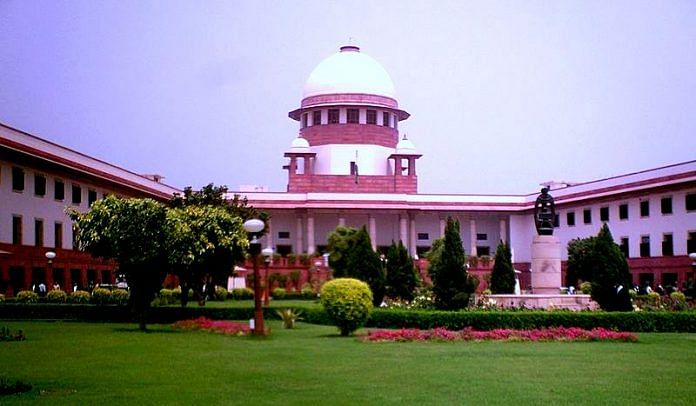The 1954 SC ruling had held that privacy is not a fundamental right. However, rulings of smaller benches have recognised privacy as part of right to liberty.
After almost a two-year wait, the Supreme Court Wednesday formed a constitution bench to hear privacy issues surrounding Aadhaar – a move that is expected to revisit a landmark 1954 ruling that privacy is not a fundamental right.
Chief Justice J.S. Khehar said that a five-judge bench would hear reference on privacy on 18 and 19 July and decide if a nine-judge bench must hear the case.
The bench will have to decide whether privacy is a fundamental right under the constitution and its contours. If the court decides that privacy is a fundamental right, logically it will ascertain whether Aadhaar violates fundamental rights.
The current landmark ruling on privacy is a 1954 ruling of eight judges and only a bench of nine judges can revisit this case. In 2015, the court sought an authoritative determination on the issue.
The government has in the past denied that an Indian citizen is entitled to privacy as a fundamental right and is likely to stick to its stand, relying on MP Sharma v Union of India, the 1954 ruling of the apex court in which eight judges had held that privacy is not a fundamental right. However, rulings of smaller bench strength have recognised privacy as part of right to liberty.
Legal experts also disagree on whether the court’s position in MP Sharma case was merely an observation or if it is binding law.
In 2015, a three-judge bench led by Justice J. Chelameswar had identified this legal tangle and directed that a larger bench must hear the case.
“If the observations are to be read literally and accepted as the law of this country, the fundamental rights guaranteed under the Constitution of India and more particularly right to liberty under Article 21 would be denuded of vigour and vitality. At the same time, we are also of the opinion that the institutional integrity and judicial discipline require that pronouncement made by larger benches of this court cannot be ignored by the smaller benches without appropriately explaining the reasons for not following the pronouncements made by such larger benches,” Chelameswar had held in 2015.
The constitution bench’s decision will determine the validity of the Aadhaar (Targeted Delivery of Financial Subsidies, Benefits and Services) Act, 2016. In the meanwhile, Aadhaar has had over a billion enrolments and the government has made its use mandatory to avail not only social welfare benefits but also for many government transactions.



